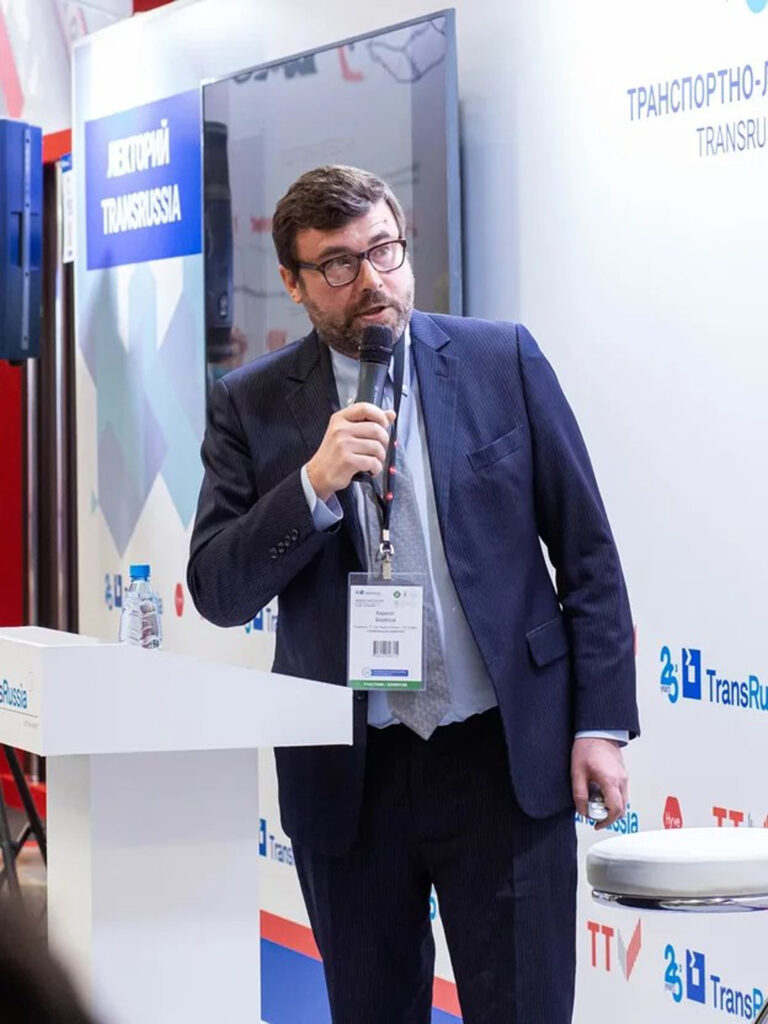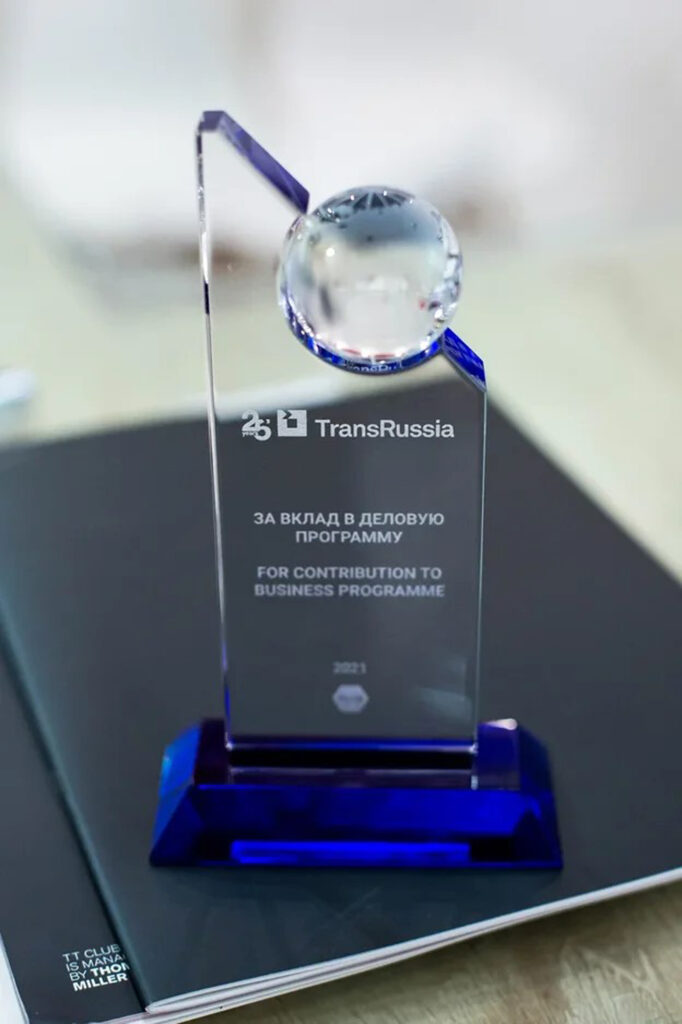Recent changes to regulations in Russian law now make it possible for forwarders and road hauliers to access full liability cover, similar to that enjoyed by those in the global supply chain. However, most insurance products on the market don’t offer comprehensive protection. Executives from Panditrans, TT Club’s Network Partner in Russia, have outlined the improved regulatory situation but emphasized the inferiority of the cover available in the market. Valuable risk management advice on temperature controlled and tank container cargoes was also presented at the recent TransRussia trade show in Moscow.
Moscow & London, 17th May, 2021
After five years of pressure from the Russian freight forwarding and transport community comprehensive freight liability cover is now possible, as officially confirmed by the applicable transport laws. Sadly, local insurers have not responded by changing the terms of their very restricted policies that continue to deny valid claims in many circumstances. TT Club’s Network Partners in Russia is strongly urging forwarders, and road hauliers, in particular to increase their demands on insurers for better, all-inclusive insurance cover.

In his lecture at the TransRussia event last month, Alexander Petrenko of Panditrans drew attention to the shortcomings of the policies that are still on offer in the market despite the regulatory change. “Operators are still opting to buy cheaper forms of protection,” he stated, going on to provide a range of examples of such policy restrictions. “We see cover that has just a few named risks, such as traffic accidents, fire and theft. Often, additional conditions are imposed, with special requirements put on sub-contracting, parking places and driver practices, that are difficult to comply with. Typical of most contracts with poor cover are low claims limits and pro-rata reimbursement clauses for when the cargo value is higher than the limit per incident.”
Having in the past cited the lack of freedom in the regulations to purchase more comprehensive cover, forwarders and carriers are now failing to demand better value for their insurance premiums. “Now is the time to change these attitudes and for demands to be made of insurers to improve their service,” urged Petrenko. “Extensive risk mitigation tools are now possible through which the insured can avoid policy restrictions as well as safeguard against other risk such as errors and omissions and legal defence costs. Higher insured limits on the value of goods in transit are also possible avoiding excessive deductibles. Forwarders and road hauliers in Russia must now demand such protection from their insurers.”
Panditrans also took the opportunity to address many stakeholders in the freight transport sector at the TransRussia conference to present some of TT Club’s loss prevention initiatives to assist those involved in temperature-controlled cargo movements, as well as the risk management of tank container operations.

Kirill Berezov of Panditrans lead this part of the conference agenda. “With the movement of perishables increasing in Russia, by both container and road trailer, it is timely to remind those in the sector of the wisdom of maintaining the safety of cargoes through professional risk management,” explained Berezov. “Panditrans and TT Club have much experience in these measures, ranging from pre-preparation of the transport equipment, packing and route planning; through to awareness of, and measures to mitigate the risks involved; and ultimately the appropriate insurance cover.” Such comprehensive advice is available to download for free in both Russian and English on TT Club’s website: Stop Loss: Temperature Controlled Cargo.
Similarly, when considering the risks involved in the movement of tank containers and their often hazardous cargoes, careful consideration of safety and security issues are critical. “The main danger lies not in the loss of the tank with the cargo itself or in damage from road accidents, but in a complex chain of errors that, as a result, can lead to catastrophic consequences given the hazardous nature of many commodities involved. Severe liabilities for the transport operator can ensue,” warned Berezov.
The main risks, with the highest potential cost of damages are environmental and injury to, or even the death of, third parties. The correct choice of specialised tank equipment, as well as thorough preparation, including cleaning to avoid contamination, are basic to avoidance of calamity. Once more, TT Club has set out best practice guidelines for operators that can be accessed in the Russian and English languages: Stop Loss: Tank Containers.

In addition to having the accolade of The Official Insurance Company of TransRussia 2021, the organisers of the event marked its 25th Anniversary by presenting Panditrans/TT Club with an award for their ‘Contribution to the Business Programme’.
About TT Club
TT Club is the established market-leading independent provider of mutual insurance and related risk management services to the international transport and logistics industry. TT Club’s primary objective is to help make the industry safer and more secure. Founded in 1968, the Club has more than 1100 Members, spanning container owners and operators, ports and terminals, and logistics companies, working across maritime, road, rail, and air. TT Club is renowned for its high-quality service, in-depth industry knowledge and enduring Member loyalty. It retains more than 93% of its Members with a third of its entire membership having chosen to insure with the Club for 20 years or more.






